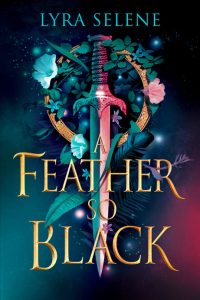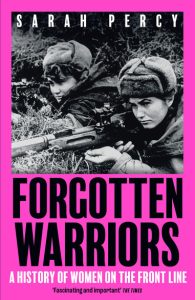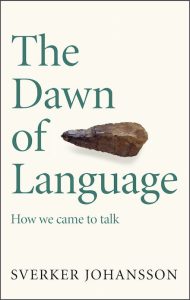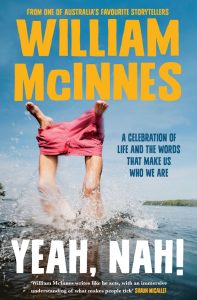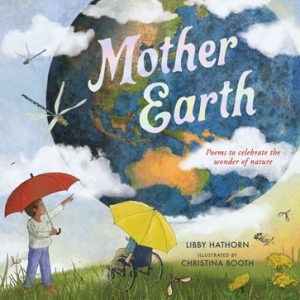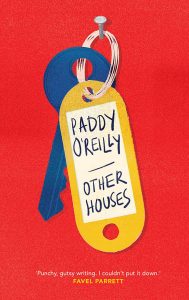by Maxwell Han.
Winner of the BWI Southern Cross Short Story Competition 2023
There is a boy in a bus-stop. Let’s call him the-boy-in-the-bus-stop. He waits for a bus that never comes. The waiting is the best part.
There is a boy in a raincoat. Let’s call him the-boy-in-the-raincoat. He stands beside the bus-stop, pretending not to watch the boy inside. The watching is the best part.
Because there is so nothing to see in this summertime stasis. Sunburnt tiles. Skateboards struggling to roll through the thick, humid air. The wildlife of modern suburbia – dogs, cats, girls, all endangered species – dying of thirst in every cul-de-sac, every driveway, every hollowed-out house. Boys with banged up knees flirting with death, with each other. There is nothing to see, but the-boy-in-the-bus-stop.
The bus-stop boy doesn’t like being watched. He prefers to be pretentious alone. “Did you want something?” he asks as the eleventh minute ticks by.
“Many things,” the raincoat boy says. He yawns out to give off a veneer of nonchalance but, really, he’s enthralled. Finally!
“Like what?”
“Summer, maybe.”
“It is summer.” The heat is a living thing. A tumour, malignant. An invasive species, eating away at the cool until there’s only this residential desert left behind. The daylight darts after him like an apex predator and his only escape from the sun’s scowl is the shade of the bus-stop.
“No, it’s not.”
“It is. Look.” The raincoat-boy flaps his arm, the bright yellow sleeves swishing so hard it provides the first cool wind the bus-stop boy’s felt in ages.
No, it isn’t. The bus-stop boy doesn’t even bother to look.
*
The next day, the bus-stop boy returns. Let’s call him Sai. He’s waiting again for that bus that never comes. Sometimes, he imagines it – as yellow and hot as everything else in this town – coming to a stop right in front of him. The bus driver tells him that it’s going far away, and it’s not coming back.
The boy in the raincoat returns. Let’s call him Oliver. He’s watching again, keen for another conversation. It isn’t every day that you find something that’s actually living in this place.
“You again,” Sai says, without looking Oliver’s way. The bus shelter was his hiding place, his respite. Here, the heat hounds after you. It’s every boy for himself.
“It’s raining again.”
“It’s not.” If only!
“It is.”
“Prove it.”
Sai shifts on the silver seat a little to make room for Oliver, who stomps his way over. Sai wants to tell him to shush; the heat will hear them.
Now there are two boys in the bus-stop.
“Well,” Oliver says.
Sai turns to him.
“Take my hand.”
“…No.”
“C’mon. Take my hand.”
He tugs at Sai, who stumbles after him, and they step onto the road.
At first, it’s just a droplet. Sai gasps at the unwelcome sensation, a slight prickle on the back of his neck. He instinctively touches it, ghosting the injured area with his free hand. He brings it up to his face, expecting to be stained with the red of blood.
He casts his eyes skyward. The sun sets like a lover not wanting to leave — but when she finally disappears a thousand clouds take her place. Thunderclaps like applause echo in the distance. Lightning illuminates the blackening world. Then, it really begins. Rain like he’s never seen before begins to wash over him in rounds, as if heaven is shooting harmless gunfire. Maybe this is how the Flood began. The deluge showers over him in cascades until the downpour is no longer distinguishable from the deep. He’s drowning in it, but now he can finally breathe.
“It’s extraordinary!” says Sai over the roar of the rainstorm, feeling its lashes against his flesh.
“Don’t you have a raincoat at home?”
“…No, I don’t.”
“OK. Wear mine.” Oliver’s already shrugging it off.
Sai’s scowl deepens. “I’m not wearing your stupid raincoat!”
“OK then.”
Oliver discards his raincoat anyway, tossing the ugly thing on the drenched concrete and watching it get washed away in the torrent. Oliver gives Sai a small smile, like a gift.
Now they aren’t boys in bus-stops or in raincoats. They are just boys.
*
Let’s say these just-boys become just-best-friends. Let’s say it comes as easily as the pavement catches the rain, or as the stars give the night kisses, or as a raincoat gets lost in an ocean. It comes to them like the raindrops do every time Sai’s hand touches Oliver’s. A daily deluge. A stormy sanctuary. It comes to them like they come to explore different places in their town, leaving muddy footprints in their wakes. Sai has never seen the town like this – roofs leaking like every house is crying of laughter, pruned bushes in perfect front yards carried away by the sea, silent streets suddenly full of the drumbeat of rainfall.
They fall into patterns, and Sai wants to fall faster. They meet every day at the bus-stop, but not inside it. They walk hand-in-hand through puddle after puddle, talking about everything and nothing. Sometimes, where the water is particularly deep, they have to swim together and it’s terribly awkward and they keep knocking into one another but they’re laughing the entire time. Sai comes to dread when the sun comes up and he has to let go.
*
Sometimes, they are boys in trouble. One day, Sai’s not there.
Oliver’s surprised. Neither Sai nor Oliver have ever been late before. If anything, they come early, like how in winter the moon arrives prematurely because she’s too excited for night-time. Oliver waits for a little while, squatting in the storm, and counts for ten lightning strikes. On the eleventh, he leaps up and goes looking for his best friend.
Oliver knows where to go, of course. As best friends, they know each other better than anyone else does. Oliver knows Sai pretends he doesn’t want a raincoat, but really it would help with the weather sometimes; Oliver also knows Sai likes to think he’s a fan of waiting, but really he’s an impatient bastard; and Oliver knows Sai’s house address, but also know he’s not allowed to visit. Every step squelches. Every raindrop rings out. It feels strange to walk these streets with no one by your side, chatting in your ear.
On the way, Oliver notices something bright sticking out of a gutter, so stark because of the dreary weather. He bounds towards it – it’s his raincoat! He wonders whether he should pick it up or not. Oliver’s fine with the rain; he doesn’t need a raincoat anymore but perhaps Sai can have it, and then he won’t forget to meet at the bus-stop anymore.
When Oliver gets to Sai’s house, smaller and shoddier than the rest, he doesn’t hesitate to knock. A man opens up the door, but only a little so Oliver can barely see inside. Like everyone else’s in this town, the man’s face is hard to make out.
“Who are you?” His voice is monotone.
Oliver blinks. “You must be Sai’s dad. I’m Oliver.”
“Who?”
Oliver bristles. “Sai’s best friend.”
The man makes a low sound. “Sai,” he calls. “Someone’s here for you.”
After a few moments, Oliver hears footsteps. The man opens the door a little wider, so that Oliver can see Sai, who looks so small next to his father.
“Sai!”
“…Oliver. Now’s not a good time.”
“You didn’t come today.”
“It’s too hot outside.” The man frowns down at Oliver. “Sai will get sunburnt.”
“The sun’s not even out. It’s raining,” Oliver says, laughing even if the man’s frown deepens. Oliver waves the raincoat in the air, getting water everywhere. “Tell him, Sai. Tell him it’s raining.”
Sai can’t meet his watery eyes.
“I think you should go,” says the man. This time, Oliver agrees.
*
Now, they are boys in a spat.
When Sai finally musters the courage to leave his house and look for Oliver, he regrets it immediately. Every step on the red-hot concrete burns the soles of his feet. The sun beats down at him like a divine punishment, like the flaming eye of God glaring at him and Sai can’t glare back. The heat has caught up to him, a living beast that has now evolved to hound at him every chance it gets.
Sai is about to burst into flames.
Look, what was Oliver thinking, showing up to his house like that? Oliver knows what Sai’s family is like; they’ve spent entire rainstorms talking about it. Oliver is lucky, Sai thinks, luckier than he’ll ever be. Oliver gets raincoats; Oliver gets the rain. What does Sai get?
Third-degree-burns, if he doesn’t get back inside.
In any case, why’s he bothering to look for Oliver? It’s too bright out anyways – even a celestial being like Oliver can’t be made out in this blindingly-white town. Even if Oliver were to put that awful raincoat on, summertime has metastasised and spread to Sai’s eyes, a myopia blocking out all else. The heat is relentless; the rain is nowhere to be found.
But can it be?
It’s always raining, isn’t it? Not just for Oliver, or for Sai. Some things just are, like the need to breathe, or the ticking of time. Sai breathes. Time passes. It rains.
And just like the first time he felt it, he gasps when the first drop touches him. His gasps turn into laughter as the sun dies and the sky blackens and the world floods. Rain cleanses his eyes and his feet, and his arms still have those burns, but they’ll fade. He turns his face upward and drinks in the torrent, so much so that he chokes and begins to drown in it – but instead of sinking, he ascends.
And when he submerges, there’s Oliver, his second sun, outshining anything else in the town. More surprisingly, there’s a bus at the bus-stop, the one he’s been waiting for all this time. Its wheels have tracked desire all over the muddy road; its engine thrums with the magic of something more.
“You know,” says Oliver, “I think it’s been waiting for you.”
Sai believes it.
“Well?” Oliver grins. “Are you getting on?”
Sai smiles back.
Now they are boys in a bus, but soon enough they will be somewhere else. Who knows where they’ll be, where that bus will take them? But perhaps it doesn’t matter where they are – just who they are.
